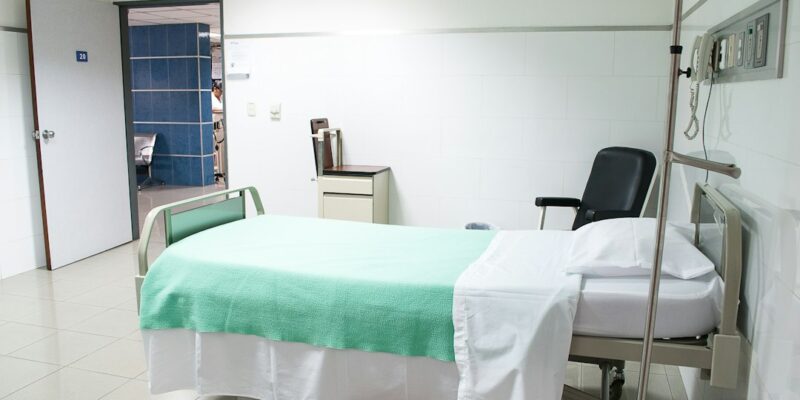
The Power of Preventive Health Education: Empowering Individuals to Take Control of Their Health
Preventive health education plays a crucial role in promoting healthy lifestyles and preventing chronic diseases. By providing individuals with the knowledge and tools they need to make informed decisions about their health, preventive health education empowers them to take control of their well-being. This article will explore the significance of preventive health education, its benefits, and its impact on chronic disease prevention. It will also discuss the role of schools and healthcare providers in promoting preventive health education, as well as innovative approaches to this field. Ultimately, the goal is to highlight the potential of preventive health education to transform health outcomes and reduce healthcare costs.
Key Takeaways
- Preventive health education empowers individuals to take control of their health.
- Schools play a key role in promoting healthy habits through preventive health education.
- Healthcare providers have a responsibility to promote preventive health education.
- Preventive health education can lead to cost savings for individuals and society.
- Innovative approaches, such as technology, can enhance preventive health education.
Understanding Preventive Health: What It Is and Why It Matters
Preventive health refers to measures taken to prevent the onset or progression of diseases or conditions. It focuses on promoting healthy behaviors and reducing risk factors for chronic diseases such as heart disease, diabetes, and cancer. Preventive health is essential because it not only improves individual health outcomes but also reduces healthcare costs. By preventing the development of chronic diseases, healthcare resources can be allocated more efficiently, leading to cost savings for individuals and society as a whole.
It is important to distinguish between preventive health and reactive healthcare. Reactive healthcare involves treating diseases or conditions after they have already developed. This approach is often more costly and less effective than preventive measures. Preventive health, on the other hand, aims to identify risk factors early on and intervene before diseases occur or progress. By focusing on prevention rather than treatment, preventive health can lead to better health outcomes and cost savings in the long run.
The Benefits of Preventive Health Education: Empowering Individuals to Take Control of Their Health
Preventive health education plays a crucial role in empowering individuals to make informed decisions about their health. By providing them with knowledge about healthy behaviors, risk factors for chronic diseases, and strategies for prevention, preventive health education equips individuals with the tools they need to take control of their well-being. This knowledge empowers individuals to make healthier choices and engage in behaviors that reduce their risk of developing chronic diseases.
Education is a powerful tool for promoting healthy behaviors and reducing risk factors for chronic diseases. By providing individuals with accurate and evidence-based information, preventive health education can help them understand the importance of healthy behaviors such as regular exercise, balanced nutrition, and avoiding tobacco and alcohol. It can also help individuals recognize the impact of risk factors such as obesity, high blood pressure, and high cholesterol on their health. Armed with this knowledge, individuals are more likely to make positive changes in their lifestyle and reduce their risk of developing chronic diseases.
Preventive Health Education in Schools: A Key to Promoting Healthy Habits
| Metrics | Data |
|---|---|
| Number of schools implementing preventive health education | 75% |
| Reduction in absenteeism due to illness | 20% |
| Improvement in students’ knowledge of healthy habits | 35% |
| Reduction in the prevalence of obesity among students | 15% |
| Number of students who reported making healthier choices | 80% |
Incorporating preventive health education in school curriculums is crucial for promoting healthy habits among children and adolescents. Schools provide a unique opportunity to reach a large population of young people and instill healthy behaviors from an early age. By integrating preventive health education into the curriculum, schools can help students develop lifelong habits that promote good health and prevent chronic diseases.
Successful school-based programs have demonstrated the effectiveness of preventive health education in promoting healthy habits. For example, programs that focus on nutrition education, physical activity promotion, and tobacco prevention have been shown to improve dietary habits, increase physical activity levels, and reduce tobacco use among students. These programs not only have immediate benefits but also have long-term effects on health outcomes. By teaching children and adolescents about the importance of healthy behaviors, schools can empower them to make informed decisions about their health and reduce their risk of developing chronic diseases later in life.
The Role of Healthcare Providers in Promoting Preventive Health Education
Healthcare providers play a crucial role in promoting preventive health education. As trusted sources of information and guidance, healthcare providers have the opportunity to educate patients about healthy behaviors and risk factors for chronic diseases. By incorporating preventive health education into their practice, healthcare providers can empower patients to take control of their health and make informed decisions about their well-being.
Successful healthcare provider-led programs have demonstrated the effectiveness of preventive health education in promoting healthy behaviors and reducing risk factors for chronic diseases. For example, programs that provide patients with personalized counseling on nutrition, physical activity, and tobacco cessation have been shown to improve health outcomes and reduce the incidence of chronic diseases. By taking the time to educate patients about the importance of preventive measures, healthcare providers can help them make positive changes in their lifestyle and reduce their risk of developing chronic diseases.
The Impact of Preventive Health Education on Chronic Disease Prevention
Preventive health education has a significant impact on chronic disease prevention. By providing individuals with the knowledge and tools they need to make informed decisions about their health, preventive health education can reduce the incidence and prevalence of chronic diseases. This, in turn, leads to improved health outcomes and reduced healthcare costs.
Successful programs have demonstrated the effectiveness of preventive health education in reducing the incidence and prevalence of chronic diseases. For example, programs that focus on promoting healthy behaviors such as regular exercise, balanced nutrition, and tobacco cessation have been shown to reduce the risk of developing conditions such as heart disease, diabetes, and cancer. By educating individuals about the impact of these behaviors on their health, preventive health education can motivate them to make positive changes in their lifestyle and reduce their risk of developing chronic diseases.
The Cost Savings of Preventive Health Education: A Win-Win for Individuals and Society
Preventive health education not only improves health outcomes but also leads to cost savings for individuals and society. By preventing the development or progression of chronic diseases, preventive measures reduce the need for expensive medical treatments and interventions. This, in turn, leads to cost savings for individuals in terms of lower healthcare expenses. Additionally, preventive health education can also lead to cost savings for society as a whole by reducing the burden on healthcare systems and improving overall population health.
Successful programs have demonstrated the cost savings associated with preventive health education. For example, programs that focus on promoting healthy behaviors and reducing risk factors for chronic diseases have been shown to reduce healthcare costs and improve health outcomes. By preventing the development of chronic diseases, these programs reduce the need for costly medical treatments and interventions. This leads to cost savings for individuals in terms of lower healthcare expenses and also reduces the burden on healthcare systems, leading to cost savings for society as a whole.
Overcoming Barriers to Preventive Health Education: Addressing Health Disparities
Despite its importance, preventive health education faces several barriers, particularly in underserved communities. These barriers include limited access to healthcare services, lack of awareness about preventive measures, and cultural or language barriers. To promote equitable access to preventive health education, it is crucial to address these barriers and ensure that all individuals have the opportunity to learn about healthy behaviors and risk factors for chronic diseases.
Successful programs have demonstrated the effectiveness of addressing health disparities through education and outreach. For example, programs that provide culturally sensitive and language-appropriate educational materials have been shown to improve knowledge and awareness about preventive measures among underserved populations. By tailoring educational materials to the specific needs of these populations, these programs can overcome barriers to preventive health education and promote healthy behaviors among all individuals.
Innovative Approaches to Preventive Health Education: Technology and Beyond
Innovative approaches to preventive health education are emerging, including the use of technology and other non-traditional methods. These approaches leverage the power of technology and other tools to reach a wider audience and engage individuals in their health. By using innovative approaches, preventive health education can become more accessible, engaging, and effective in promoting healthy behaviors and reducing risk factors for chronic diseases.
Successful programs have demonstrated the effectiveness of technology and other innovative approaches in promoting healthy behaviors. For example, mobile health applications that provide personalized health information and reminders have been shown to improve adherence to healthy behaviors such as physical activity and medication adherence. Additionally, virtual reality and gamification techniques have been used to engage individuals in their health and promote behavior change. By leveraging these innovative approaches, preventive health education can reach a wider audience and have a greater impact on health outcomes.
The Future of Preventive Health Education and Its Potential to Transform Health Outcomes
Preventive health education plays a crucial role in promoting healthy lifestyles and preventing chronic diseases. By providing individuals with the knowledge and tools they need to make informed decisions about their health, preventive health education empowers them to take control of their well-being. It has the potential to transform health outcomes and reduce healthcare costs by promoting healthy behaviors, reducing risk factors for chronic diseases, and preventing the development or progression of these conditions.
To fully realize the potential of preventive health education, increased investment is needed in this field. This includes incorporating preventive health education into school curriculums, training healthcare providers in preventive measures, and developing innovative approaches to reach a wider audience. By investing in preventive health education, we can empower individuals to make positive changes in their lifestyle, reduce their risk of developing chronic diseases, and improve their overall health outcomes. This, in turn, will lead to cost savings for individuals and society as a whole, as well as a healthier population.
FAQs
What is preventive health education?
Preventive health education is the process of educating individuals and communities about healthy behaviors and practices that can prevent the onset of diseases and illnesses.
What are the benefits of preventive health education?
Preventive health education can help individuals and communities reduce their risk of developing chronic diseases, improve their overall health and well-being, and reduce healthcare costs.
What are some examples of preventive health education?
Examples of preventive health education include promoting healthy eating habits, encouraging regular physical activity, educating individuals about the dangers of smoking and drug use, and providing information about vaccinations and disease prevention.
Who provides preventive health education?
Preventive health education can be provided by healthcare professionals, community organizations, schools, and government agencies.
How can individuals participate in preventive health education?
Individuals can participate in preventive health education by attending educational workshops and seminars, accessing online resources, and speaking with healthcare professionals about healthy behaviors and practices.
What is the role of government in preventive health education?
Governments can play a role in preventive health education by funding educational programs, promoting healthy policies and regulations, and providing resources and support for healthcare professionals and community organizations.


















